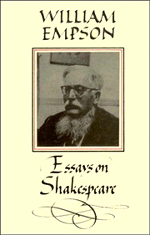1 - The narrative poems
Published online by Cambridge University Press: 01 March 2011
Summary
The poems of Shakespeare have great ability and moments of genius, but we need not labour to praise them, since we must rejoice that he went back to the theatre – recognising perhaps that they were in some way inadequate for him. Nonetheless, they saved his career at the one crucial time, and they record (though mainly in the Sonnets) an experience so formative that the plays echo it for the rest of his life. No other playwright known to us worked regularly for the public theatres both before and after their long shutdown because of the plague in 1592–4, after which new companies of actors had to be formed; to survive it was an achievement. At this time a patron was essential for him, whereas afterwards (apart from one graceful kindness) he seems to avoid writing for patrons. His early life is obscure but two facts stand out like rocks: he dedicated to the Earl of Southampton (b. October 1573) both Venus and Adonis (1593) and The Rape of Lucrece (1594), sounding much more intimate on the second occasion. Our first record of Shakespeare as a member of the Lord Chamberlain's Company, in which he stayed for the rest of his working life – indeed our first record of it performing at a London theatre – is dated just after the Earl's coming of age. The Earl became liable to a heavy fine for rejecting a marriage arranged during his minority, so perhaps did not pay very much, but would help to get the company launched.
- Type
- Chapter
- Information
- William Empson: Essays on Shakespeare , pp. 1 - 28Publisher: Cambridge University PressPrint publication year: 1986
- 1
- Cited by



